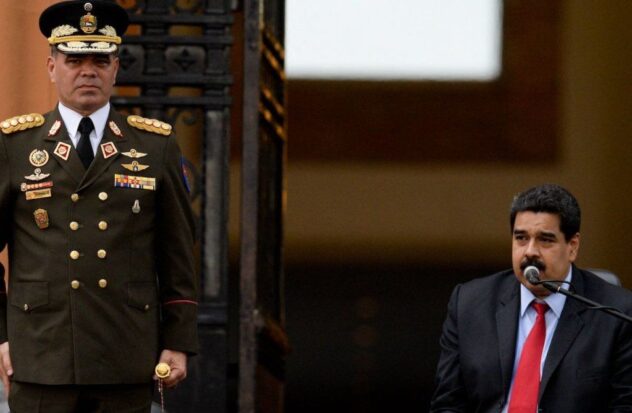CARACAS.- Following the presidential elections and evidence of the illegitimacy of a third term for Nicolás Maduro, the military Venezuelans remain on the side of the Chavista dictatorship.
In this sense, the members of the National Armed Forces (FAN) have once again shown themselves to be a monolithic force in their support for the tyrant. Madurowithout the opposition’s allegations of fraud regarding his re-election or international pressure affecting what they define as “unconditional support.”
Following the presidential elections of July 28 and the opposition’s allegations of fraud, which claim with data that Edmundo González Urrutia is the president-elect, the Minister of Defense ratifies that Maduro is “our commander in chief, who was legitimately reelected by the popular power and proclaimed by the Electoral Power for the presidential period 2025-2031.”
Head of the military office since October 2014, General in Chief Vladimir Padrino López has ignored the requests of the opposition and the international community for transparent scrutiny.
Meanwhile, the militarized National Guard (GN) took to the streets to disperse some post-election protests with tear gas and pellets. repression has left at least 20 dead and 939 arrests since July 29.
Politicization of the military
Named Bolivarian by former President Hugo Chavez (1999-2013), the Venezuelan Armed Forces do not hide their politicization. Among their slogans was “Homeland, Socialism or Death!”, which became “Homeland, Socialism and Life!” when the socialist leader fell ill with cancer. “Chavez lives!” is today their official and obligatory greeting inside Venezuelan barracks.
The Bolivarian Constitution, promoted in 1999 by Chávez – a charismatic lieutenant colonel who became famous when he led an attempted coup in 1992 – granted the right to vote to the military.
The Venezuelan military gained immense power with key positions in state institutions (regime), including Petróleos de Venezuela (Pdvsa), since the arrival ofand Mature in power in 2013, military influence has intensified.
In addition to arms, the military controls mining, oil and food distribution companies, as well as customs and 12 of 34 ministries, including key ministries such as oil, energy, defense, interior relations and trade. The opposition and experts denounce corruption networks that have enriched many officers.
Retired General Antonio Rivero, a critic of Chavismo, exiled in the United States, said that “Maduro does not have military leadershipr to support himself as commander in chief. The Armed Forces are won over with privileges, promotions and the creation of new positions.”
According to Rivero, distrust has also set in within the FAN: The military They are closely guarded in the barracks, and do not trust their comrades in arms.
For her part, Laura Dib, director of the Venezuela program at the WOLA human rights think tank, said that “it is very difficult to understand” what is happening within the Armed Forces “because every time a soldier has rebelled against Maduro, the repression and persecution has been relentless.”
Dib said: “We know of soldiers who have been subjected to torture. These are exemplary cases that send the message that if they turn against the government, that is what will happen to them.”
In this context, human rights organisations have denounced the politically motivated arrests – most often on charges of conspiracy – of dozens of military personnel (149 as of 1 July) and the deaths in custody of three of them.
In 2020, according to the International Institute for Strategic Studies (IISS), the Venezuelan Armed Forces had 343,000 members, a size similar to that of Mexico (341,000), and only surpassed in Latin America by Colombia (428,000) and Brazil (762,000).
After decades of alliance with the United States, Hugo Chavez’s arrival to power marked the beginning of relations with Russia, which supplies the country with Sukhoi planes and Kalashnikov rifles. In July, two Russian military ships visited the country.
“High-ranking military officials have become incredibly powerful,” said Rebecca Hanson, a professor at the University of Florida’s Center for Latin American Studies. “They have a lot to lose if Maduro falls.”
With information from AFP
Source: AFP


